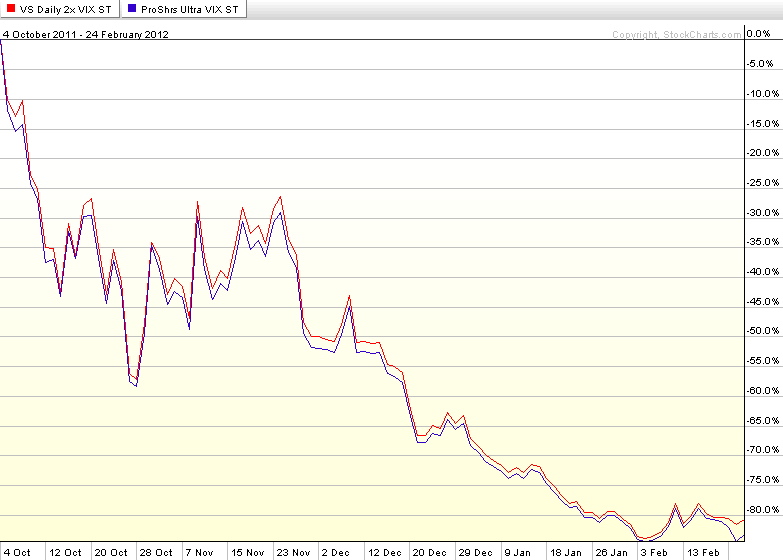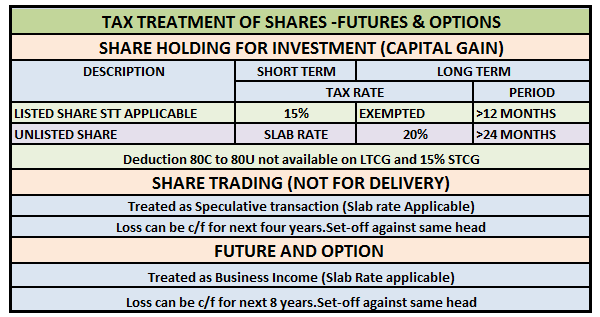Exchange traded options taxation
Forbidden
Exchange traded funds ETFs are uniquely structured investments that track indexes, commodities or baskets of assets. Like stocks, ETFs can be purchased on margin and sold shortand prices fluctuate throughout each trading session as shares are bought and sold on various exchanges.
ETFs have become standard in many investors' portfolios, due in part to the many benefits of ETF investingincluding their tax efficiency. Due to the method by which ETFs are created and redeemed, investors are able to delay paying most capital gains until an ETF is sold. As with any investment, it is important for investors to understand the tax implications of ETFs prior to investing.
Here we will introduce asset classes, structures and the tax treatment of exchange traded funds. ETF Asset Class and Structure The way that an ETF is taxed is determined by its method of gaining exposure to its underlying assetsits structure and the amount of time that the ETF is held.
Equity funds market indexes, stocks Fixed income funds bonds Commodity funds tangible goods Currency funds foreign currency Alternative funds multiple asset classes or nontraditional assets. Open-end funds Unit investment trusts UITs Grantor trusts Limited partnerships LPs Exchange-traded notes ETNs. ETF Tax Treatment The combination of an ETF's asset class and structure, along with how long the ETF is held short-term gains apply to investments that are held for one year or less; long-term gains apply when a position is held for more than one yeardetermines its potential tax treatment.
Figure 1 shows the maximum long-term and short-term tax rates for various ETF asset classes and structures your tax rate may differ depending on your marginal tax rate.
The table above shows maximum long-term and short-term capital gains rates, by percentage. The maximum rate for both long-term and short-term capital gains for higher-income individuals and married couples may differ under the tax laws. Because there is such a broad range of tax rates and potential financial implications, it is important to understand a fund's structure before investing.
It is structured as a Unit Investment Trust. Information regarding a fund's holdings and structure can typically be found in a fund's quick fact sheet or prospectus. Currency, Futures and Metals ETFs Special treatment is given to currency, futures and metals Exchange traded options taxation. In general, ETF tax rules follow the sector in which the ETF invests.
How Tax Treatments Of ETFs Work
Profits earned from currency ETFs structured as grantor trusts or ETNs, for example, are taxed as ordinary income, regardless of how long the position is held. Futures ETFs gain exposure to an underlying commodity or asset through investing in futures contracts. Shown above the weighted tax rate from the maximum rates amounts to In addition, mark-to-market rules may apply, and unrealized gains will forex vs poker taxed as if they had been sold at the end of the year.
Gold, silver and platinum bullion are considered collectibles for tax purposes. If your gain is short termit will be taxed as ordinary income. Exchange traded funds are an increasingly popular investment choice for those who want take advantage of the many favorable ETF features, including tax efficiency. This article is intended to provide an introduction only. Because tax laws are complicated and do change from time to time, it is important to consult with a qualified tax specialist, such as a Certified Public Accountant CPAbefore making any investment decisions and filing your annual return.

Dictionary Term Of The Day. A measure of what it costs an investment company to operate a mutual hi point 40 cal carbine stock. Latest Videos PeerStreet Offers New Way to Bet on Housing New to Buying Bitcoin? This Mistake Could Cost You Guides Stock Basics Economics Basics Options Basics Exam Prep Series 7 Exam CFA Level 1 Series 65 Exam. Sophisticated content for financial advisors around investment strategies, industry trends, and advisor education.
How Tax Treatments Of ETFs Work By Jean Folger Updated October 26, — 4: Exchange traded funds can be categorized into one of five asset classes: Equity funds market indexes, stocks Fixed income funds bonds Commodity funds tangible goods Currency funds foreign currency Alternative funds multiple asset classes or nontraditional assets For taxation purposes, ETFs are further categorized by one of five fund structures: Open-end funds Unit investment trusts UITs Grantor trusts Limited partnerships LPs Exchange-traded notes ETNs ETF Tax Treatment The exchange traded options taxation of an ETF's asset class and structure, along with how long the ETF is held short-term gains apply to investments that are held for one year or less; long-term gains apply when a position is held for more than one yeardetermines its potential tax treatment.
The Bottom Line Exchange traded funds are an increasingly popular investment choice for those who want take advantage of the many favorable ETF features, including tax efficiency. Boost your returns by learning the tax tricks and loopholes for your exchange-traded funds. Read about the potential tax implications for investors of leveraged exchange-traded funds, or ETFs, and learn why leveraged ETF taxation can be so complicated.
With the ongoing ETF boom, ETFs gain more variety and increased competition in the market leads to further investors' advantages compared to index funds. The exact number of ETFs on the market at any one time ebbs and flows, these twelve ETF providers offer hundreds of popular ETFs.
As the popularity of ETFs soar, a look at the main benefits of these investment vehicles. Want to invest but don't understand the difference between investment products? Here we explain ETFs vs. Mutual Funds and which is right for you.
Twenty-First Securities Corporation - Strategies For The Professional Investor
Compare mutual funds and exchange-traded funds to find out which one offers the most advantageous tax position for investors An expense ratio is determined through an annual A hybrid of debt and equity financing that is typically used to finance the expansion of existing companies.
A period of time in which all factors of production and costs are variable. In the long run, firms are able to adjust all A legal agreement created by the courts between two parties who did not have a previous obligation to each other.

A macroeconomic theory to explain the cause-and-effect relationship between rising wages and rising prices, or inflation. A statistical technique used to measure and quantify the level of financial risk within a firm or investment portfolio over No thanks, I prefer not making money.
Content Library Articles Terms Videos Guides Slideshows FAQs Calculators Chart Advisor Stock Analysis Stock Simulator FXtrader Exam Prep Quizzer Net Worth Calculator. Work With Investopedia About Us Advertise With Us Write For Us Contact Us Careers. Get Free Newsletters Newsletters. All Rights Reserved Terms Of Use Privacy Policy.